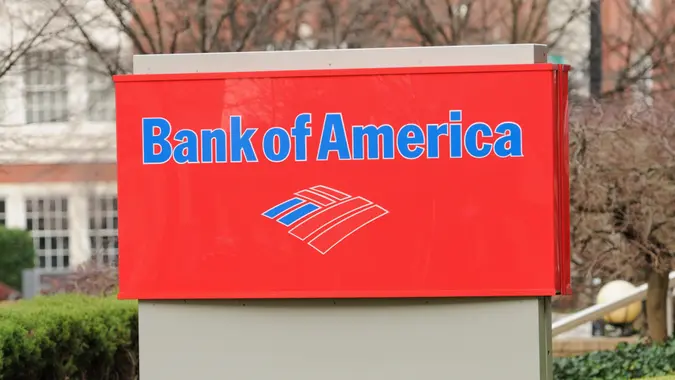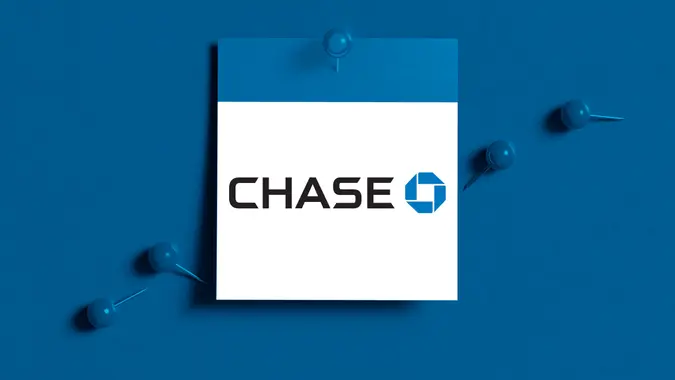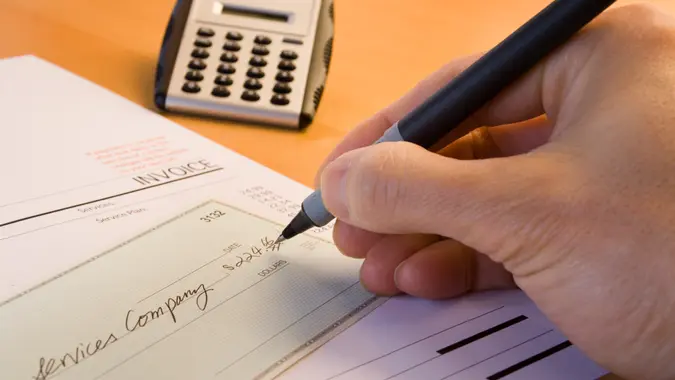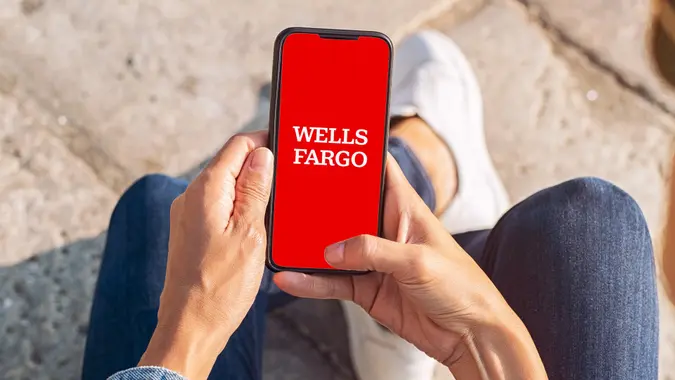5 Benefits of Direct Deposit

Commitment to Our Readers
GOBankingRates' editorial team is committed to bringing you unbiased reviews and information. We use data-driven methodologies to evaluate financial products and services - our reviews and ratings are not influenced by advertisers. You can read more about our editorial guidelines and our products and services review methodology.

20 Years
Helping You Live Richer

Reviewed
by Experts

Trusted by
Millions of Readers
With electronic statements, online banking and mobile apps, paper paychecks can seem oddly out of place. Among American workers, about 93% choose to receive paychecks by direct deposit, according to Nacha, the organization that governs the ACH Network.With the conveniences and benefits of direct deposit and certain incentives offered by banks, it’s no wonder customers are moving away from paper checks.
5 Best Benefits of Direct Deposit
All payment forms have pros and cons, but direct deposit is the direction most companies are going when it comes to paying employees, so it is good to know the perks. Here are five benefits of direct deposit:
- Money is available sooner
- Save more each pay period
- Direct deposit is flexible and secure
- Improve your budgeting skills
- Save yourself and your employer time and money
1. Money Is Available Sooner
One of the most important perks of this electronic payment option is that your funds clear immediately and go straight into your bank account. You might even have your money on payday morning, regardless of the time your employer normally hands out paychecks.
Direct deposit gives you predictable deposit dates so you can schedule your automatic bill payments for dates when you know you’ll have the cash in your checking account. Having this scheduled money sooner allows you to limit the number of questions you have about the funds in your account, late payments and other budgetary concerns.
2. Save More Each Pay Period
Direct deposit can have a positive effect on how you manage your money. By setting up your direct deposit to drop money into different accounts, like your savings and an emergency fund, you build savings automatically so that you don’t forget.
Because direct deposit eliminates the cost of check handling and increases cash flow for the bank, you can also avoid certain banking fees, which helps to save money. Set up your paycheck to be deposited directly, and your bank might waive its monthly maintenance fee and minimum balance for you. You might even qualify for better interest rates.
3. Direct Deposit Is Flexible and Secure
Receiving direct deposits isn’t just for paychecks. You can sign up for direct deposit to receive expense reimbursements from your employer as well as travel and cash advances to multiple accounts in whichever bank, financial institution or credit union you choose.
You can also use direct deposit to build your retirement fund and receive income tax refunds and unemployment benefits.
Since direct deposit moves your funds discreetly from your employer to you, nobody can sneak a peek at your financial information, which helps to ensure that it stays private.
4. Improve Your Budgeting Skills
If you’re saving up for a vacation or car, direct deposit can help you budget for the expense. By limiting funds for a vacation to one account, for example, you know precisely how much you can afford to spend while on your trip.
Depositing checks in person can also tempt you to take out a bit of cash to carry in your pocket. Direct deposit takes the physical paycheck and unnecessary pocket money out of the equation so you’re less likely to spend frivolously on things you don’t need.
5. Save Yourself and Your Employer Time and Money
Direct deposit simplifies the payment and bookkeeping process for your employer. Printing and handing out checks is labor-intensive and leaves more room for errors. Your employer will also spend less on paper, ink and other materials needed for paper paychecks.
These savings multiply as more employees switch to direct deposit. By reducing the workload for your human resources department, you can free up their time and budget to focus more on providing employee services. You are also more likely to leave work on time as some employers pass out paychecks at the end of the day or at lunchtime to avoid distracting employees, which can add time and frustration to the day.
Direct Deposit: Quick Take
Direct deposit is free, convenient and easy to set up by filling out the deposit form. All you need to provide is your bank name and bank account information such as your account number and routing numbers. You can get paid straight to your checking or savings account on time no matter where you are without having to worry about cashing in or depositing checks.
Pros and Cons of Direct Deposit
| Pros | Cons |
|---|---|
| Eliminates fear of loss or stolen check | Need a bank account and Social Security number |
| Can switch banks with ease | Not all employers offer direct deposit |
Why Is Direct Deposit Better Than Checks?
Direct deposit is definitely the most convenient and easiest way to deposit for employees and employers. Online and mobile banking make it easier for you to review details on deposits and other financial information. You won’t need to worry about keeping a drawer full of pay stubs to keep tabs on your payroll history as it’s all saved digitally for you.
Explore More on Direct Deposit
- What Is Direct Deposit?
- What Time Does Direct Deposit Hit?
- How Long Does Direct Deposit Take?
- What is ACH Direct Deposit?
- Best Banks for Early Direct Deposit
FAQ
- What are the pros and cons of direct deposit?
- The pros of direct deposit include eliminating the fear of losing your check, getting your money sooner and improving your budgeting skills. Cons of direct deposit include having to have a bank account to set it up, which usually requires a Social Security number as well.
- What is the advantage of direct deposit from the employer's perspective?
- One advantage of direct deposit from the employer's perspective is that it simplifies the payment and bookkeeping process for your employer. Printing and handing out checks is labor-intensive and leaves more room for errors. Your employer will also spend less on paper, ink and other materials needed for paper paychecks.
Caitlyn Moorhead and Daria Uhlig contributed to the reporting for this article.
Our in-house research team and on-site financial experts work together to create content that’s accurate, impartial, and up to date. We fact-check every single statistic, quote and fact using trusted primary resources to make sure the information we provide is correct. You can learn more about GOBankingRates’ processes and standards in our editorial policy.
 Written by
Written by  Edited by
Edited by 
























